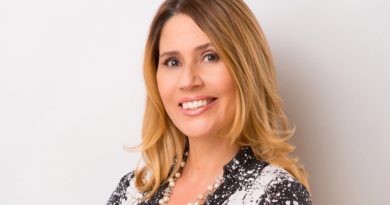Wldkat joins growing list of indie beauty closures
Three-year-old skin-care brand Wldkat is the latest brand to succumb to the mounting pressures faced by beauty startups.
Founder Amy Zuzunegui announced via a video posted to Instagram and TikTok on Wednesday that the brand would be shutting down after setbacks including the decline of the CBD category and diminishing funding opportunities for beauty. It is the latest in a wave of indie beauty brands to announce closures, following Athr Beauty last week.
“We honestly probably should have closed the brand about a year ago. I was going, ‘OK, this isn’t working,’ I was at my kind of breaking point,” said Zuzunegui to Glossy.
A former Urban Decay executive known for her work on cult products such as the Naked Palette, Zuzunegui initially launched Wldkat as a CBD skin-care brand before pivoting to mushroom and other buzzy ingredients like kombucha and saffron. Stocked at Target, Ulta Beauty, Erewhon and Credo Beauty, the brand was geared toward a young, socially conscious customer base with packaging using bio resin sugarcane plastic and post-consumer recycled plastics.
Launched fittingly on 4/20/2020, the brand was part of her broader vision for cannabis.
“The original concept for Wldkat was a cannabis brand in the state of California focused on female consumption,” she said. With multiple board members hailing from the cannabis world instead of beauty, “We were never set up, from day one, as a beauty or skin-care company.” When the brand was in development in 2019, it was conceived as a separate entity from what was set to be a cannabis brand of the same name. But then the pandemic hit, the board and Zuzunegui decided to focus exclusively on the beauty portion of the business.
But it quickly ran into the challenges that all CBD labels have faced in recent years. These included limits to advertising, exclusion from major payment platforms and mainstream retailers, and expensive production. “The pricing fluctuation is bananas,” said Zuzunegui.
Navigating the challenges for CBD was “a complete nightmare,” said Zuzunegui. She recounted one story in which her samples came back from the lab with inexplicable positive results for THC and threats that the DEA was going to be notified. In another instance, the company’s manufacturer backed out of producing CBD products and Zuzunegui had to quickly find a new one.
These factors convinced the company to pivot away from CBD, removing it from products and instead focusing on other ingredients, such as mushrooms. Its old inventory with CBD was sold off through TJ Maxx. After the rebrand, Wldkat secured retail partnerships with Ulta Beauty and Target.
The challenges for the CBD beauty industry as a whole have come to a head this year. In January, cannabis company Cronos Group shuttered Kristen Bell’s CBD skin-care brand Happy Dance and announced that it would be winding down beauty categories for Lord Jones.
Wldkat’s initial funding came from cannabis-focused investors, including VC and angel money. But the rebrand and decision to scale with major national retailers were costly. In addition to new packaging, the brand had to take on the costs of new photoshoots, inventory shipping to retailers, new ads and a new marketing plan. Without CBD, the initial cannabis investors were out of the picture.
Zuzunegui entered talks with a set of potential investors that pushed heavily for a celebrity partner to keep up with the celebrity skin-care boom, she said.
“We got a tremendous amount of pressure to do a celebrity deal” from investors, she said. “Everybody thinks that’s the easiest path to quick success, and it can be. But if you think about all the celebrity brands that have launched, there are five that are doing really well and there are a lot more that are not doing well.”
“It’s hard to find that [celebrity] who is really interested, and if they’re big enough to make noise for a brand like ours, they’re getting 10 of these deals a day,” she said.
The brand did not secure a celebrity partner and the investment deal eventually fell apart, with the potential new investors pulling out in February of this year. In the same month, Zuzunegui’s husband was diagnosed with cancer.
Indie beauty brands face a challenging market these days, with the rising costs of operating a business, the competitor-saturated market and a shrinking amount of funding.
Zuzunegui warns entrepreneurs that high margins in beauty are far from a guarantee of success.
“In fashion, the multiples on an exit are one-and-a-half to two-and-a-half. In beauty, they’re 10-12,” she said. “The reason that so many people come into the space is they think there’s so much money to be had, which there can be, [but] it’s hard to reach the customer and cut through the noise.”
As for her next steps, Zunzunegui is now working on a new beauty startup as a team member rather than a founder.
“I can take the things that I’ve learned and now give those learnings to somebody else who owns the brand,” she said.

